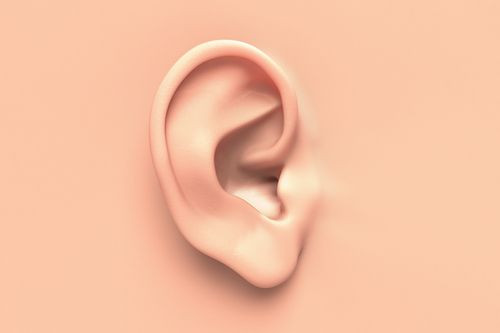Earwax Gains Respect: It Can Keep Cortisol Levels Steady

Researchers in the UK have revealed an innovative way to measure a person’s level of cortisol – a hormone often linked to stress -- that may make it easier to track depression, stress levels and similar conditions in the future.
Earwax Sampling of Cortisol
One’s level of the cortisol hormone is an indicator, not only of stress, but other mental health problems and other medical conditions. In the UK, researchers at University College London and King’s College London have developed a new way to collect cortisol by sampling earwax, the waxy substance found in the ears.
“Cortisol sampling is notoriously difficult, as levels of the hormone can fluctuate, so a sample might not be an accurate reflection of a person’s chronic cortisol levels,” said lead researcher Andres Herane-Vives, PhD, in a press release.
“But cortisol levels in earwax appear to be more stable, and with our new device, it’s easy to take a sample and get it tested quickly, cheaply and effectively.”
Cortisol can be sampled in blood, for example, even hair. But these aren’t reliable indicators of stable cortisol levels because they are affected by food, alcohol, nicotine, UV radiation, and more.
The main advantage of an earwax sampling is that it is unaffected by these variables.
So, UK researchers created a tool that can get the samples and follow distancing health protocols. The new device can be used at home without a healthcare professional.
In the paper, published in the public access journal Heliyon, researchers illustrated the earwax sampling device. It mirrors a handheld massager and has three parts: a sponge, the tip holding the sponge, and the handgrip. It gathers samples like a cotton swab. However, a brake can stop the device from going too far into the ear, preventing damage. The sponge comes with a solution to take earwax samples effectively.
To test the device, the team recruited 37 healthy participants to undergo several earwax samplings. For the first sampling, a standard syringe injected tap water, at 37 degrees Celsius, into the external ear canal of the left ear. The method caused mild pressure in the ear and flushed out the earwax. A month later, a syringe was used in the right ear for one sampling, while the participants used the new earwax device themselves on the other ear. Researchers took hair and blood samples as well.
Results showed that the device got better earwax samples compared to using the syringe. The earwax samples also had more concentrated cortisol than hair samples. Blood samples still contained more concentrated cortisol than the other two methods.
The new cortisol sampling technique is still in the early stages. Researchers are now looking into its potential in measuring blood sugar levels and COVID-19 antibodies.
Why Doctors May Test Your Cortisol
Cortisol is released from the adrenal glands, which sit on top of the kidneys. The hormone plays a role in several functions, like regulating the immune system and controlling blood pressure. High cortisol levels may cause a higher risk of infection, higher blood pressure and increased blood sugar.
An article from the University of Rochester Medical Center listed reasons that might call for a cortisol test.
- Fat buildup on the face, neck and torso, accompanied with thin arms and legs
- Thin skin that bruises easily
- Streaks of the color pink or purple on the stomach, buttocks and thighs
- Excess face and chest hair in women
- Fatigue
- Dark patches on the skin
Cushing syndrome and Addison disease may explain abnormal cortisol levels. The first condition usually refers to very high cortisol levels, while the second typically refers to very low cortisol levels. Other possible reasons for unusual cortisol levels include malnutrition and panic disorder. Ask your doctor for more information about cortisol.
Adrenal Fatigue
You may have heard the term adrenal fatigue used to describe low levels of cortisol, energy and tiredness. A post in the Harvard Medical School blog explained that adrenal fatigue is not a recognized medical diagnosis. A recent review of 58 studies found no scientific proof to diagnose adrenal impairment as a cause of fatigue.
If you are experiencing chronic fatigue, you may consult your doctor to find out the real reason. Talk to your health provider to learn how to overcome that fatigue.
Ralph Chen is an enthusiast of medical topics and advanced technologies.
Published by Medicaldaily.com



























